Six months ago, they were predicting a colder than normal winter. In January that seemed to be the case. We had multiple fronts with high winds and temperatures dropping into the 20s. But February has been different. As I type this, it is 62°F and we have had some of the nicest days we have had in a while. Sunny, low humidity, really nice. AND THE GROUNDHOG SAW HIS SHADOW!!! So… maybe an early spring?
With the warmer temperatures I thought we might encounter some of our ectothermic friends (amphibians and reptiles). On days like we have seen, snakes and turtles will come out from their winter hiding spots to bask in the sun. Since our early winter article, two cottonmouths have been seen on Santa Rosa Island. They were both reported as being very sluggish – but that is to be expected – it is still winter, and the temperatures are still low in the mornings. With that thought in mind we did our February mid-winter hike at Ft. Pickens.
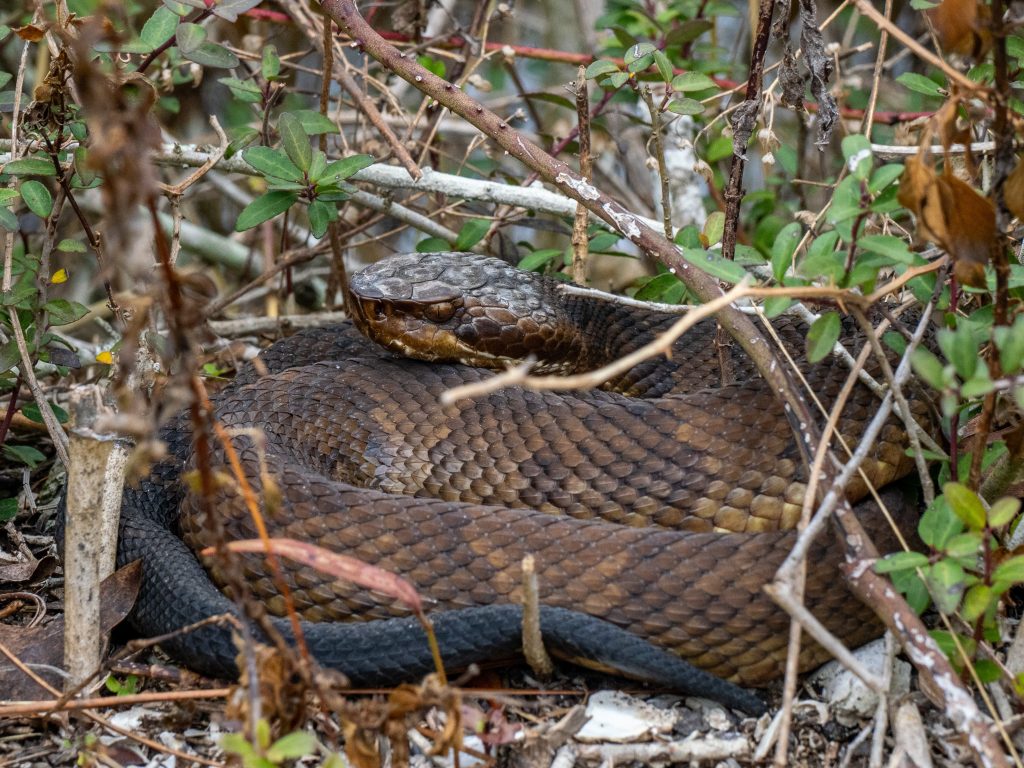
The hike was on February 6. It was a beautiful sunny day, the temperature was 49°F, light wind from the north. I will say, in the wind it was a bit chilly, but behind the dunes it was very pleasant.
Along the trail I noticed a lot of green plants, but nothing was in bloom. Often the change in temperature can fool flowering plants into blooming early. However, the pine trees were full of male and female cones. They were definitely getting ready for pollen season.
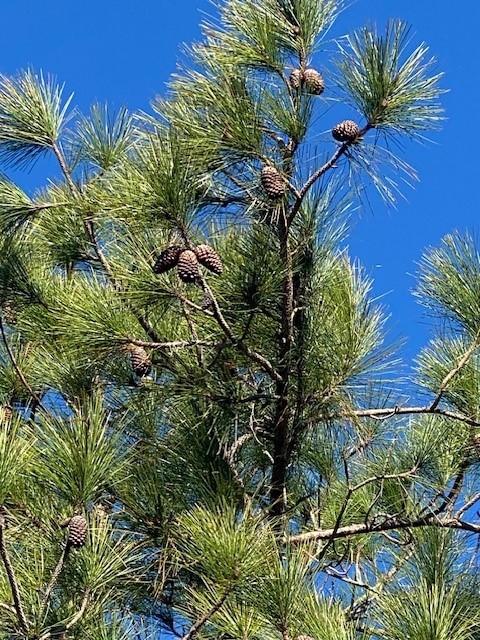
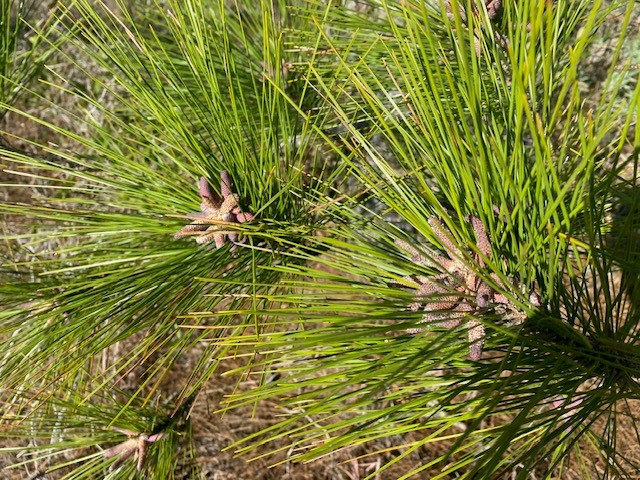
I began in the middle of the island in the hardwoods, moving slowly hoping to find a basking snake. I did not, but I did see numerous woodland songbirds. I am not a good birder, but I believe there were varieties of warblers, titmice, wrens, and the always present mockingbird. I did spot a great blue heron on a nest. Birds are endothermic – and this is their time – a great time to do some birding if you like that.
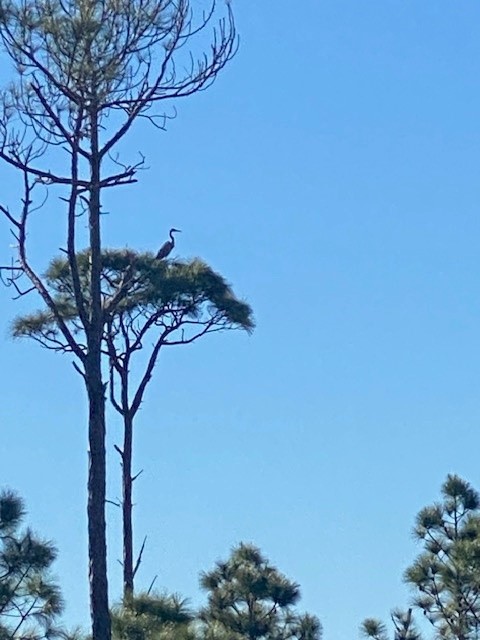
I took another trail heading towards the beach. This crossed through more woodlands before reaching the dunes and the shore. It was in the woodland area I came across a bald eagle nest. Many of us remember a time when we never saw bald eagles around here. Now they are becoming more common and nesting all around the bay area. These awesome birds are similar to dolphins, sea turtles, manatees, and the Blue Angels – you never get tired of seeing them. It is always an exciting moment when one flies over.
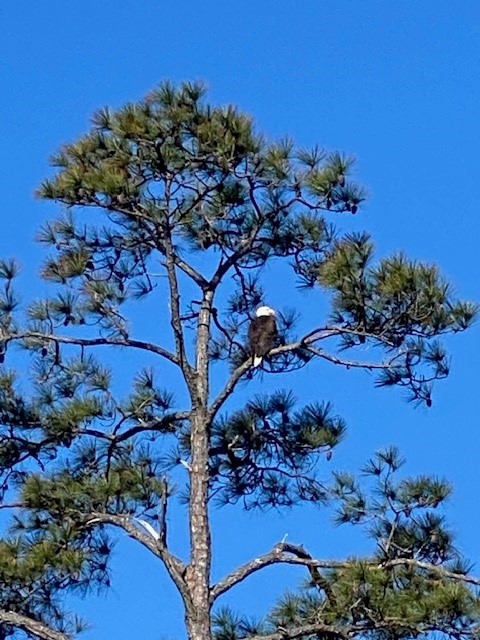
There was no wildlife on the beach that day but there were plenty of tracks. Mammals, even in the winter, still prefer to move around under the cover of darkness. I found the tracks of armadillo and raccoon, common mammals on our island, but there was another set that was harder to identify. The paw had the imprint of a cat (no claws visible) but the track was quite large for a feral cat. If it was, it was a big cat. I have seen bobcats in the Gulf Breeze area, and you cannot rule them out, but the pattern of the stride appeared more like an otter. Otter tracks would be webbed – these were not – so… I am not sure what it was.
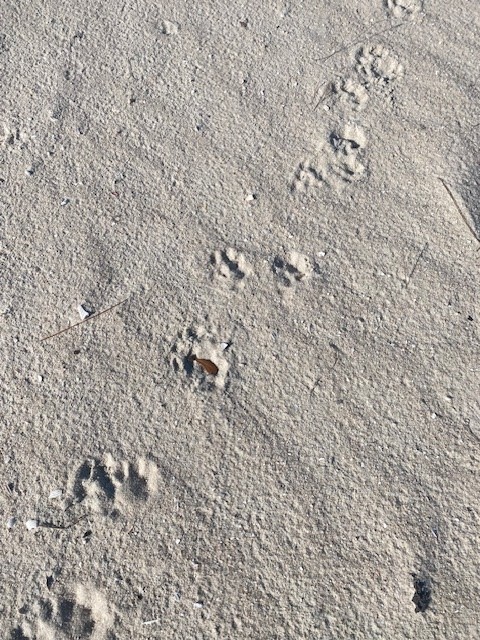
Leaving the beach, I returned to the inland trail heading back to the truck. On this portion of the trail, you cross over ponds just outside the walls of the fort. As I glanced across the water – hoping for a swimming snake – I saw something else. It surfaced briefly and then dove again. At first, I thought it was a diving bird, such as a cormorant or loon, but when it resurfaced, I saw that it was not. It was an otter. I had seen otters before in this area, and other pond areas on the island, but – like the bald eagle and dolphin – it is always exciting to see them again.
Based on this hike, it is still the time of the “warm-blooded”. Birds and mammals were the creatures most visible. We will see if this warming trend continues. Maybe during the late winter hike in March, we will see some of the “cold-bloods” come out. Maybe it WILL be an early spring.
Get out and hike – the weather is fine!
- Rattlesnakes on Our Barrier Islands; Part 5 – Reproduction - January 12, 2026
- Rattlesnakes on Our Barrier Islands; Part 4 – Thermoregulation - December 29, 2025
- Rattlesnakes on Our Barrier Islands; Part 3 – Envenomation - December 22, 2025
